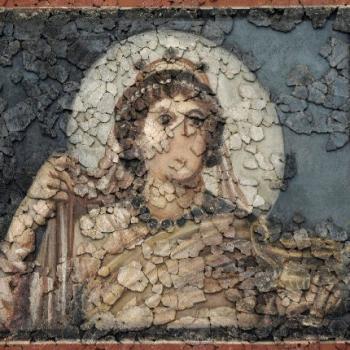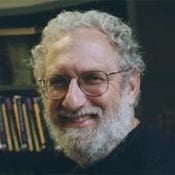As we cut the budgets and let the social programs wither, as global warming and invasive species threaten the integrity of ecosystems and human health, as endless and endlessly faster technological change leads everything that is solid to "melt into air," it is reasonable to ask, what should we try to preserve? What is worth holding onto? And what can we save that might help us make the world more just, caring, and sustainable?
Here's an answer from me—no doubt many readers will have their own: The Peace Abbey and the Life Experience School of Sherborn, Massachusetts. In the dark time that is the present, people stuck in poverty need material help, to be sure. But all of us need some institutions that envision a truly better society. Any place that gives us an indication that something else is possible is truly priceless, because it helps us give an answer to the kinds of despair that haunt my students when they ask: "But professor, isn't it just human nature to be competitive and selfish?" If we cannot get at least a taste of mutual respect, service to life, and honor for the truly noble among us, how are we to continue to believe such things are possible?
The Abbey is an interfaith spiritual center dedicated to the peace and justice teachings of all the world's faiths. The centerpiece of its grounds is a life sized statue of Gandhi, flanked by a series of plaques with quotations about peace and justice from Quakers, Catholics, Buddhists, Jews, Hindus, Muslims, Taoists, Indigenous peoples, and secular champions of social goodness. It houses a remarkable library of resources on pacifism, socialism, peace, veganism, women's and gay rights, liberation for ethnic and national minorities, and interfaith respect and cooperation.
When a member of the armed forces seeks C.O. status the Peace Abbey is there to help; when a Tibetan-American is imprisoned by the Chinese for seeking to document Tibet's cultural heritage, the Abbey takes up his cause. When vegans, peace activists, or supporters of human rights need a place to meet, they use the Abbey. When America's response to 9/11 threatens the civil liberties of American Muslims, the Peace Abbey broadcasts the Muslim Call to Prayer over its loudspeakers; and when the U.S. invades Iraq, Abbey leaders chain themselves to the fence of a nearby army base in protest and are arrested for civil disobedience.
"To make gentle the life of the world," is the Abbey's slogan, but it knows that this gentleness must be expressed in political action: moral witness that there is another way than the variety of 'isms' (racism, nationalism, fanaticism, militarism, terrorism, imperialism, sexism, etc.) that shape the world now.
The founder of the Abbey, Lewis Randa, created a school for special needs students, The Life Experience School, as his C.O. service during the Vietnam War. The students who have passed through the doors of this tiny haven for the last forty years have had intellectual disabilities, serious emotional problems, and physical handicaps. While Randa and his staff have taught them as much of the "usual" as they could—a smattering of math or reading or social studies—the real educational message is far more vital. "You are important, you are worthwhile, your voice and your presence matter to the rest of us."
This is the message they imparted to my daughter Esther, who spent three years at the Life Experience School. Esther's combination of physical and intellectual problems has created a medical history that would fill a large book. But shortly after she first arrived, Randa asked her to greet people coming to a school function. Time after time he called on her to speak, even when she was hesitant, unsure of herself, and more than a little scared. Randa's faith in Esther helped give her a voice, which she now uses to do presentations at public schools and in fundraising efforts for groups that work for people with special needs.
Ultimately both the Abbey and the School have this same mission: to give a voice to all who need and deserve one, but who are marginalized, trampled, and shut out by the dominant social structures of our time. These are places for people of faith who believe that God prefers love to self-righteousness; for patriotic Americans who think our country should choose peace over war; for animals who cannot speak in words, but whose suffering in factory farms and labs cries out for help; for the developmentally disabled who need the rest of us to listen much more carefully to find the insights and value that their lives have to offer us.
Like countless social programs, progressive publications, environmental organizations, and institutions that serve women or minorities in this time of fiscal fear, both the Abbey and the School are in deep financial trouble. They need a great deal of money to continue. I invite any readers who seek a better way for our nation and our planet to visit their website, look deeply at what they see, and make a financial connection to them—or with any other groups that serve a similar purpose. If we truly want a better world, it is the Peace Abbeys and the Life Experience Schools that will help us get there. They can help save us from our social, political, and spiritual depression, because they show us the ongoing reality of the best that is in us and what it is at least possible that we can become. But such places can continue to do so only if we try to save them as well.
Is human nature unendingly selfish and competitive? "No it isn't," I tell my students, "look at this and this and this." How important is it to all of us to have some places at which to point. If we value the future, we must make the future—in no matter how small a way—live in the present.
For more information: The Peace Abbey and the Life Experience School.
4/19/2011 4:00:00 AM





